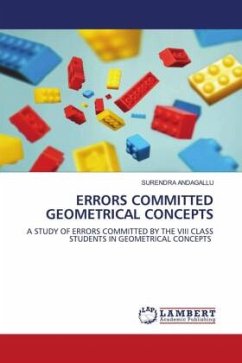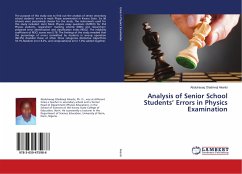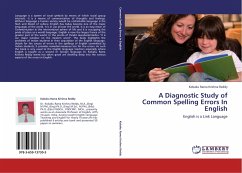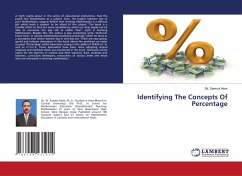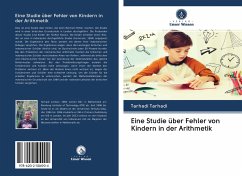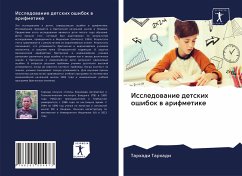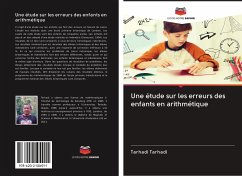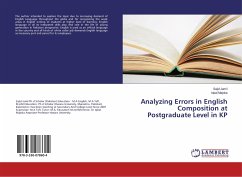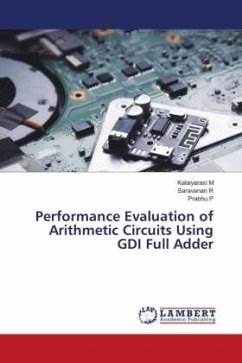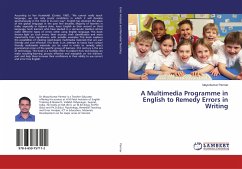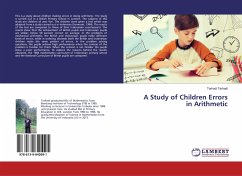
A Study of Children Errors in Arithmetic
Versandkostenfrei!
Versandfertig in 6-10 Tagen
36,99 €
inkl. MwSt.

PAYBACK Punkte
18 °P sammeln!
This is a study about children making errors in doing arithmetic. The study is carried out in a British Primary School in London. The subjects of this study are children of year five. The children were given a test which was adapted from a study carried out in Indonesia (Somerset, 1994). The results of the test are compared to those of their Indonesian counterparts. The results show that the achievement of British pupils and Indonesian pupils are similar, below 50 percent correct on average. In the problems of mechanical arithmetic, the British and Indonesian pupils make different kinds of err...
This is a study about children making errors in doing arithmetic. The study is carried out in a British Primary School in London. The subjects of this study are children of year five. The children were given a test which was adapted from a study carried out in Indonesia (Somerset, 1994). The results of the test are compared to those of their Indonesian counterparts. The results show that the achievement of British pupils and Indonesian pupils are similar, below 50 percent correct on average. In the problems of mechanical arithmetic, the British and Indonesian pupils make different kinds of errors, while in ordering decimals both the British and Indonesian children make the same pattern of errors. In the problem solving questions, the pupils achieve high performance when the context of the problem is familiar for them. When the context is not familiar the pupils show a poor performance. To explore the reasons behind the results obtained, the 1984 mathematics curriculum of Indonesian primary school and the National Curriculum of British pupils are compared.



